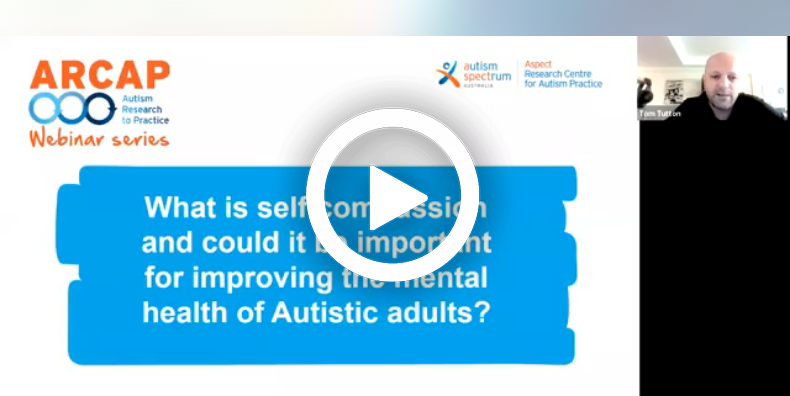For many people, sending love to others is easy, but being kind to ourselves can be difficult. The act of being warm and understanding towards ourselves is called self-compassion. There is growing evidence that self-compassion is important for our mental health, particularly when we suffer, fail or feel inadequate.
Anna’s lived experience
Anna, an Autistic woman who received an autism diagnosis later in life, has been practising self-compassion for five years. She explains how this has helped improve her mental health and why it can be especially beneficial for Autistic people.
“Being Autistic really affects how people react to you. It’s unfortunately very normal to have people treat you like an idiot when you’re Autistic or be really hard on you for your mistakes,” says Anna.
“I was very hard on myself because I grew up being told everything I did was wrong and stupid, and I believed it. Self-compassion is doing a 180 on that and learning to think the opposite way. It’s about reversing all the unhealthy stuff you get taught as an Autistic person.”
“I have found that self-compassion has really helped with my own trauma because I have that ability to self-soothe. I become a lot less reactive; I can calm myself down enough to stop panicking and think rationally to get myself out of the panic.”
Anna’s self-compassion tips
If self-compassion doesn’t come easily to you, don’t worry. The good news is that self-compassion can be learned. Some of the tips that Anna has found helpful are:
- Noticing when other people make mistakes: When we see other people not being perfect, it’s reassuring because we can realise that making mistakes is often not a big deal.
- Self-soothing: Using self-compassion during stressful situations, is a way we can learn to calm ourselves down.
- Not judging ourselves: It’s a lot more pleasant and peaceful to be gentle on ourselves.
- Praising ourselves: If something is difficult, scary or stressful and we do it anyway, we should be proud of ourselves. That is a sign of true strength.
- Remembering that we are not alone: By recognising that everyone feels sadness or stress at times during their lives, we feel less alone and our situation doesn’t seem as overwhelming.
- Not giving up: Practising self-compassion can feel a bit silly and fake at first, but stick with it. With practice, you will find that being kind and warm towards yourself becomes more automatic."
What the research tells us
Dr Ru Ying Cai, a researcher at the Aspect Research Centre for Autism Practice is leading a novel project to understand whether or not Autistic adults’ capacity to be self-compassionate and ability to regulate emotions impact their mental health and psychological wellbeing.
“Our research has found that as a group, Autistic adults have lower levels of self-compassion and wellbeing when compared to non-Autistic adults. We also found that Autistic adults are more likely to experience anxiety and depression,” says Ru.
Diving deeper into the data, the researchers found a link between self-compassion and mental health of Autistic adults. People with higher levels of self-compassion were younger, had lower symptoms of anxiety and depression and better wellbeing.
“We discovered that Autistic adults who practise self-compassion are better able to regulate their emotions. They also use emotion regulation strategies to help themselves feel better.”
Free online self-compassion resources
Excitingly, ARCAP researchers now have enough evidence to continue their research into self-compassion. They are creating free online resources to help people develop self-compassion skills.
ARCAP is inviting Autistic adults to use these online resources to see if they can improve their self-compassion levels and mental health. If you are interested in taking part in this study or would like to know more, please email Lead Researcher, Dr Ru Ying Cai below.





